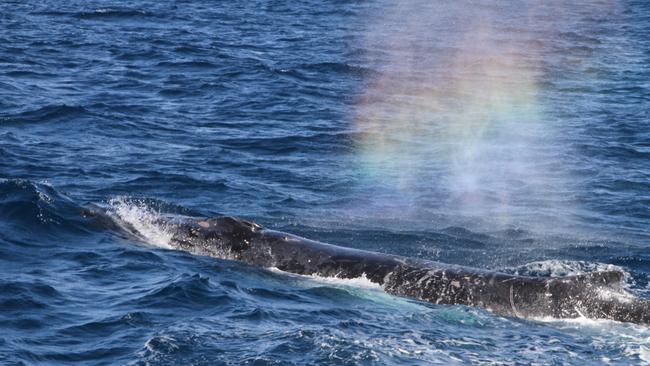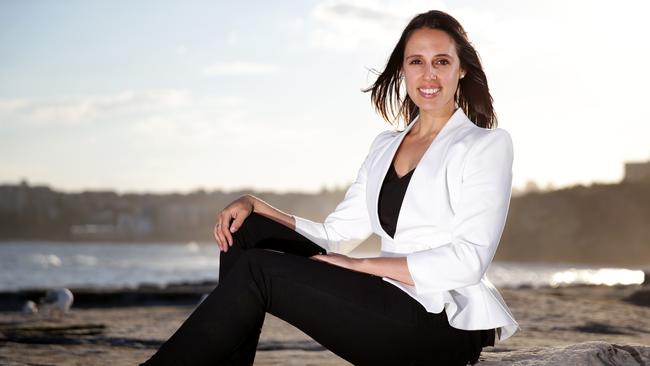Drones used to collect whale snot in innovative research program led by marine health researcher Dr Vanessa Pirotta
An unusual method is being used to collect the bodily fluids of Australia’s humpback whales — and it could be key to our ocean’s future.

VIC News
Don't miss out on the headlines from VIC News. Followed categories will be added to My News.
Drones are being used to collect whale snot in an innovative research program aimed at tracking the health of Australia’s migrating humpback populations and their environment.
Marine health researcher Dr Vanessa Pirotta is helping lead the research project which scientists hope will reveal the wider health of our oceans.
“This is the type of technology we never thought would be possible a few years ago,” Dr Pirotta said.
Researchers, who previously took samples using poles, now fly drones over humpbacks and deliberately position them into the spray from whales as they breach the surface.
“It means you can fly a drone more than 200m away over a 17m, 40-tonne mammal.
“It’s less intrusive, is safer for the whales and the researchers.”
Dr Pirotta will be among the speakers at the TEDx conference in Melbourne on Wednesday night. Her talk also coincides with World Ocean Day on Saturday.
The researcher said bacteria in the snot specimens would give scientists a baseline for research to track the health of the whale population and how they are being affected by the environment.

“In the past, nobody gave much thought to whale snot was or what it could reveal,” she said.
It’s hoped the program will eventually be extended to include other species including the southern right whale.
“Whales are mammals like you and I and we can use them as a canary in a coal mine to give us an indication of our ocean’s health,” Dr Pirotta said.
MORE: ANCIENT FOUR-LEGGED WHALE WALKED ON LAND
WHAT KILLED 30 WHALES FOUND ON VIC BEACH?
“Small changes on land can help make a difference to the health of the marine environment.
“Saying no to straws and plastic bags and not releasing balloons into the atmosphere.
“You don’t have to be a scientist or a drone expert to make a difference.”
The marine health researcher will be among a list of experts at Wednesday night’s TedxMelbourne conference, “Limitless”.
TEDxMelbourne organiser Jon Yeo said the speaking line-up was once more bringing together different ways of thinking and set to deliver something for everyone in the audience.
“Regardless of attendees’ background or personal interest areas, this diverse panel of speakers is guaranteed to stimulate the mind with their unique expertise and way of thinking,” he said.


